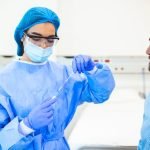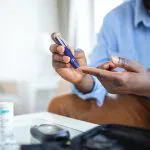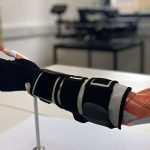One gene plays a big role in heart failure recovery
Mayo Clinic researchers have made a significant breakthrough in understanding dilated cardiomyopathy, a common cause of heart failure.
Published in Circulation Research, their genome-wide association...
Healthy diet may help prevent prostate cancer
A recent study published in BJU International has shed new light on the relationship between diet and prostate cancer risk.
Conducted on 15,296 men in...
Artificial intelligence is already in our hospitals. 5 questions people want answered
Artificial intelligence (AI) is already being used in health care. AI can look for patterns in medical images to help diagnose disease.
It can help...
Scientists find new hope in pancreatic cancer treatment
Pancreatic ductal adenocarcinoma (PDAC) is one of the most aggressive forms of cancer.
It grows and spreads rapidly, and sadly, the survival rate is quite...
Scientists find new risk factors for sudden cardiac arrest in people with type 2...
Type 2 diabetes (T2D) is known to double the risk of sudden cardiac arrest (SCA), a leading cause of death where the heart abruptly...
Revolutionary electronic glove offers new hope for stroke survivors
In a significant advancement for stroke rehabilitation, researchers from the University of Southampton have developed an electronic glove designed to aid stroke survivors.
This breakthrough...
Sense of smell could predict Alzheimer’s disease
Scientists at the University of Chicago Medicine have made a significant discovery linking the decline in the sense of smell with the onset of...
Probiotics can help fight against high blood pressure, study finds
High blood pressure, or hypertension, is a major health issue affecting around 40% of adults worldwide. It's a significant risk factor for heart disease...
Scientists find the key to the spread of lung cancer
A novel study by Tulane University has shed light on a previously unknown molecular pathway that could impact the treatment of lung cancer, one...
Manganese may help reverse heart disease
Cardiovascular diseases (CVDs), primarily caused by the buildup of lipid deposits or plaques in blood vessels, remain the leading cause of death globally.
This condition,...










